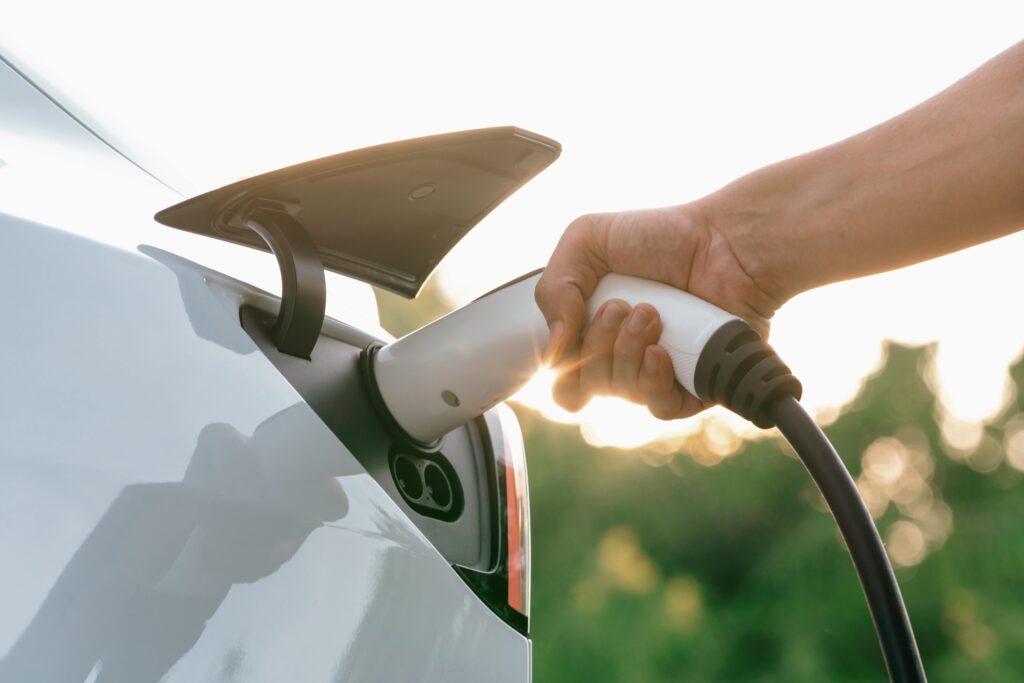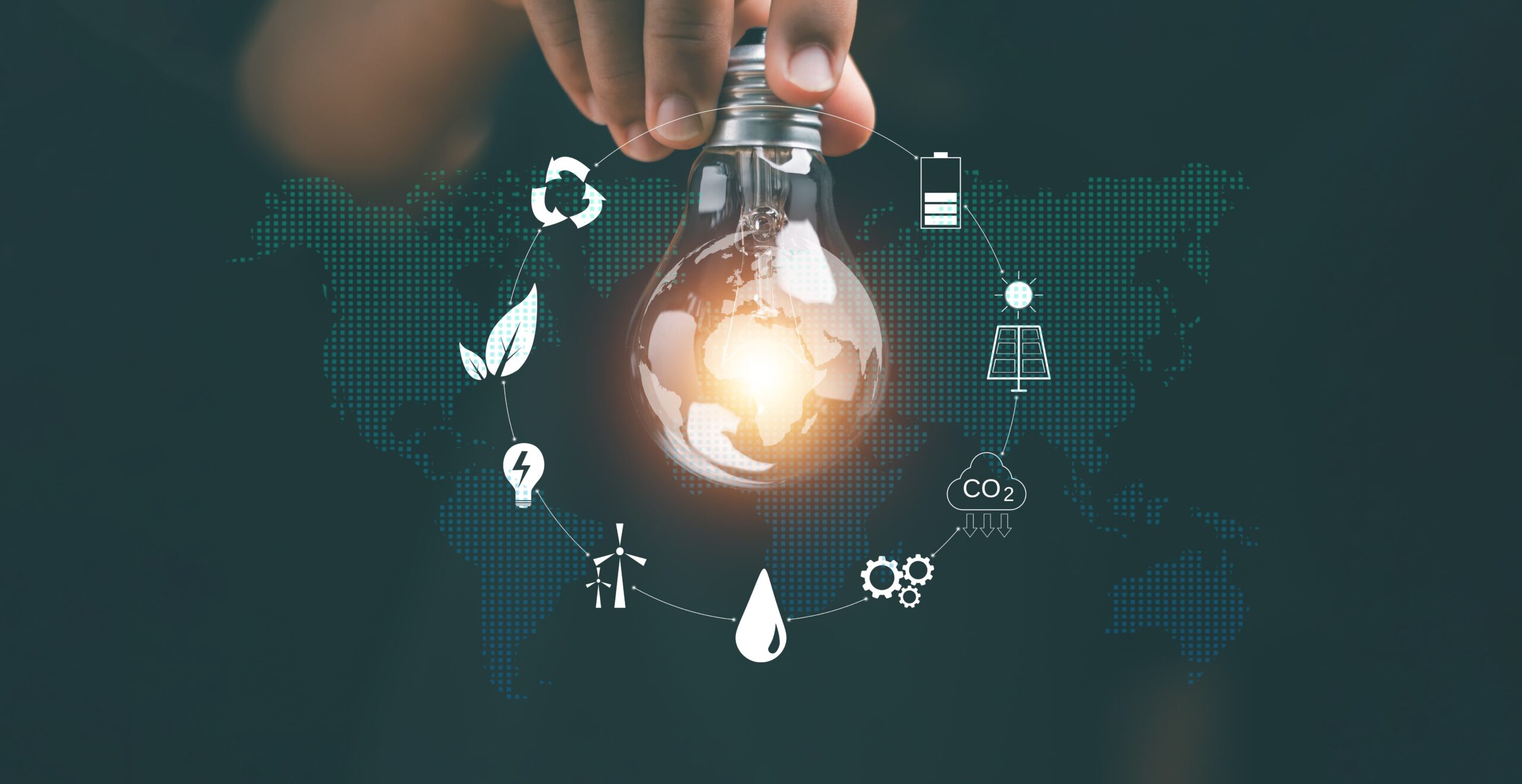Renewable Energy Trends in 2025
In the UK, the renewable energy sector is changing a lot. The country wants to meet its climate goals and move to a greener energy system. Experts expect key renewable energy trends to continue emerging or intensifying. Here are the top trends in renewable energy to watch out for:
1. Expansion of Offshore Wind Energy
- Record Growth in Offshore Wind: The UK is already a global leader in offshore wind energy. During 2025, offshore wind capacity will increase substantially. The government’s goal to achieve 40 GW of offshore wind by 2030 will drive investment and development. Floating wind turbines will be an area of growth, enabling wind farms in deeper waters, particularly off the coasts of Scotland.
- Infrastructure Development: There will be significant investment in port infrastructure, maintenance facilities, and grid connections to accommodate the growing offshore wind industry.
2. Solar Energy and Large-Scale Solar Farms
- Rise of Solar Power: While solar energy has been less prominent in the UK compared to wind, the trend is shifting. With cost reductions in solar panel technology and increasing energy demand, solar power is expected to grow. The UK’s drive for decarbonisation, combined with the rise of solar farms, will see more projects coming online soon.
- Agrivoltaics: The integration of solar power with agriculture (known as agrivoltaics) is also a trend to watch. In areas with available land, solar panels are being installed on farmland to provide clean energy without significantly impacting crop production.
3. Energy Storage Solutions
- Battery Storage: As renewable generation increases, so does the need for energy storage solutions to balance supply and demand. The UK is likely to see significant advances in large-scale battery storage projects. These systems will store surplus energy generated by wind and solar and release it during periods of low generation or high demand.
- Innovations in Long-Duration Storage: Alongside traditional lithium-ion batteries, the UK may begin to deploy alternative long-duration storage technologies. This includes pumped hydro storage, flow batteries, and iron-air batteries, to ensure more reliable energy storage for longer periods.
4. Green Hydrogen Development
- Hydrogen Strategy Expansion: The UK government has already outlined its ambition to become a global leader in green hydrogen production. Expect significant strides in the development of hydrogen production capacity, particularly green hydrogen made using renewable energy sources. Hydrogen is seen as essential for decarbonising industries like steel production, shipping, and heavy transport.
- Hydrogen Hubs: The creation of regional hydrogen hubs, such as the HyNet project in the north west, will provide key infrastructure to produce and distribute hydrogen across sectors and regions. These hubs will be crucial for meeting the UK’s 5 GW hydrogen target by 2030.
5. Net Zero and Decarbonisation Goals
- Zero-Carbon Economy by 2050: The UK’s commitment to reaching net-zero emissions by 2050 means that there needs to be a clear focus on accelerating renewable energy projects. The transition from fossil fuels to renewables will continue across sectors such as electricity generation, heating and transport.
- Carbon Capture and Storage (CCS): CCS technologies, which capture CO2 emissions from industrial processes, are expected to complement renewable energy growth, especially in hard-to-decarbonise industries. CCS pilot projects are set to be scaled up in the UK, helping to offset emissions and achieve climate targets.
6. Electrification of Transport
- Electric Vehicles (EVs): The UK has set a target to end the sale of new petrol and diesel cars by 2030. The EV market will likely see exponential growth, driven by government incentives, stricter emissions regulations, and increasing consumer demand. This trend will increase demand for renewable electricity to power EVs.

- EV Charging Infrastructure: The expansion of EV charging infrastructure will go hand in hand with the growth in EV adoption. The UK is expected to invest in more charging stations powered by renewable energy sources, ensuring that EVs are charged with clean electricity.
7. Smart Grids and Digitalisation
- Intelligent Grid Management: Smart grids will play an increasingly important role in the UK’s energy transition. These digital grids enable better management of energy flows, integrating renewable energy sources into the grid while balancing supply and demand more efficiently. AI and machine learning technologies will optimise grid operations, supporting the integration of renewable energy and the expansion of decentralised systems.
- Demand Response Programmes: The use of digital platforms for demand response (where consumers are incentivised to shift or reduce their energy use during peak periods) will grow, helping to stabilise the grid and reduce the need for fossil fuel-based backup generation.
8. Decentralised Energy Generation
- Community Energy Projects: Localised, community-driven energy projects will continue to grow in importance. These projects, such as small-scale solar farms, wind turbines and biomass, allow communities to generate and consume their own renewable energy, reducing dependence on national grids and increasing energy security.
- Peer-to-Peer Energy Trading: There will be wider implementation of blockchain and smart contracts in energy markets. This could enable households to trade surplus solar power with others, contributing to a more decentralised and flexible energy system.
9. Green Finance and Investment
- ESG Investment Growth: As sustainability becomes a higher priority for both public and private investors, the UK will see increased investment in renewable energy projects. The rise of green bonds, ESG (Environmental, Social, Governance) investments, and sustainable finance will channel more funds into clean energy technologies, further driving the energy transition.
- Public-Private Partnerships: Partnerships between government bodies and private companies will be crucial in funding large-scale renewable projects. The UK government has already committed to substantial investments in green energy. This will likely continue as part of the effort to meet its climate goals.
10. Energy Efficiency in Buildings
- Building Retrofitting: The UK will continue to focus on retrofitting homes and buildings to improve energy efficiency. Government initiatives such as the Green Homes Grant and other incentives for energy-efficient upgrades, including heat pumps, better insulation, and smart energy management systems, will drive the trend. There will likely be a higher number of homes and commercial buildings adopting energy-efficient measures powered by renewables.
- Heat Pumps and Building Electrification: The transition from gas boilers to heat pumps will become more widespread, especially with the government’s push for low-carbon heating. Heat pumps extract heat from the air or ground, offering an energy-efficient way to heat buildings with renewable electricity.
11. Circular Economy for Renewable Technologies
- Recycling of Renewable Equipment: As renewable energy technologies mature; recycling and circular economy principles will become more important. The UK will see advancements in the recycling of wind turbine blades, solar panels and batteries. This will ensure that materials are reused, reducing waste and supporting the sustainability of the renewable sector.
12. Hydropower and Tidal Energy
- Tidal and Wave Energy: The UK, with its long coastline, has enormous potential for tidal and wave energy. Though still emerging, there may be more pilot projects and early-stage commercial developments in tidal energy. Particularly in regions like Scotland, which are well-suited to harness marine energy.
Conclusion
The UK will see a continued shift toward a low-carbon, renewable energy system, driven by offshore wind, solar power, energy storage and green hydrogen. Alongside technological advancements, the UK’s energy transition will be supported by strong government policies, private sector investment, and growing public interest in sustainability. The integration of smart grids, electrification of transport, and the development of community-based energy solutions will make the country’s energy system more flexible, efficient, and cleaner than ever before.



